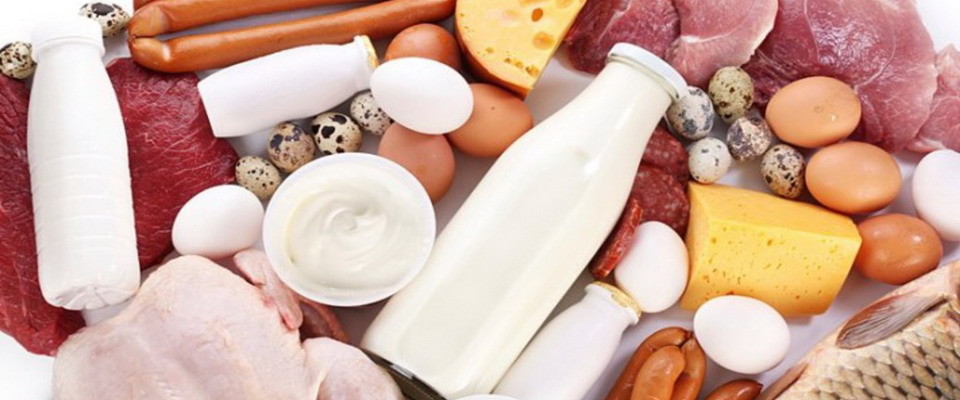Proteins of animal origin are the irreplaceable suppliers of easily digestible calcium, protein, lactose and many other nutrients to the human body. The indisputable benefit of cow's milk is widely used in childhood and infancy. However, for an adult, dairy products are of paramount importance in health preservation and promotion.
Products belonging to the first and second groups are the main sources of valuable animal proteins. They contain a balanced set of amino acids and serve to build and update the basic structures of the human body.
Cow’s milk protein
The cow's milk protein is well absorbed by the human digestive system. Cow's milk is a nutritious, easily digestible product, suitable for people of all ages. Many still underestimate its remarkable properties, but it is milk that can largely meet the need of children and adults in basic nutritional substances. 100 grams of milk contains about 60 kcal, about 3 grams of protein, 3.2 grams of emulsified fat, a large number of easily digestible calcium and phosphorus compounds, vitamins A, B2 and D (in summer, the content of these vitamins in milk is much higher than in winter).
Milk powder is especially rich in protein: its share in the product reaches 26%. But in a dry form, it is impossible to eat so much, especially since the energy value of 100 grams of such milk is 475 kcal.
Due to the added sugar, the condensed milk is also a high-calorie product: in 100 grams of the product there is about 7% protein, 8% fat, 50% carbohydrates, more than 300 kcal.
Nutritional value of dairy products
The benefits of all kinds of dairy products (kefir, curdled milk, ayran, koumiss, etc.) were mentioned for so many times that it remains only to repeat the Indian proverb: "Drink sour milk and live a long time." With the right leaven, these drinks not only preserve the beneficial properties of milk, but are enriched with microorganisms that prevent the development of putrefactive microbes in the large intestine.
High nutritional value of dairy products, which have different types of cheese and cottage cheese, including fat-free, which many neglect to their detriment. Meanwhile, it contains the maximum protein - about 18% - and a relatively small fraction of fat - 0.6%. Caloric content of low-fat cottage cheese is low (86 kcal per 100 grams of product), which allows recommending it to obese people.
In addition, in curd, as in other dairy products, there is a relatively large amount of choline, methionine and other substances that can prevent the development of obesity of the liver.
Protein content in dairy products
The protein content of dairy products is so high that 0.5 liters of milk per day is enough to cover a quarter of the daily requirement for the animal form of this food element. 1 liter of milk contains a daily rate of calcium.
Cheeses, as a rule, are quite high in calories, in fact, along with high protein content (20-25%), they have at least a significant amount of fat (25-50%). Protein in dairy products is the ideal building material for the restoration and regeneration of any tissues of the human body.
In 100 grams of cheese there is about 350-400 kcal.
The benefits of dairy products for humans
Scientists who have studied the benefits of dairy products in humans have notes the multiple benefits of protein and calcium in combination with some other vitamins and minerals.
Thus, milk and dairy products quite successfully combine high-grade proteins, easily digestible fats, some minerals and vitamins. It was not for nothing that I.P. Pavlov called milk the food prepared by nature itself.
Dairy products be part of a healthy daily diet of milk protein and digestible calcium.
